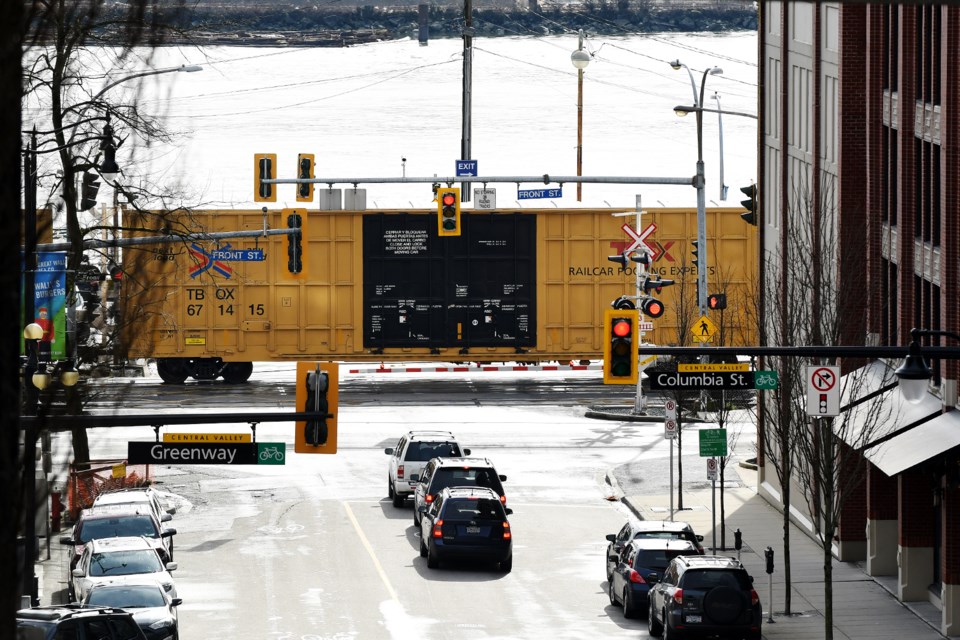Trains travelling through two crossings in downtown New Westminster no longer have to sound their whistles – but that doesn’t mean you’ll never hear them again.
Working with the railways, the City of New Westminster has achieved whistle cessation at the Begbie Street/Front Street and Fourth Street/Front Street railway crossings.
“City staff have worked diligently with multiple parties to address this issue throughout a lengthy and complex process,” said Mayor Jonatan Cote. “This is an important step in moving forward our long-term goal of whistle cessation across our city.”
Coun. Chuck Puchmayr said the city’s railway community advisory panel helped “big-time” and was a significant factor in moving the whistle cessation initiative forward, as it provided a place where railway representatives, city officials and community members could discuss railway issues. He said it provided a forum where the various parties could start to understand each other’s issues and develop respect for each other.
“The railways didn’t have to agree with any of it,” he said. “All of this is subject to approval of the railways. If the railways didn’t agree they simply would not engage and we would never have it. It took a lot of relationship building. When we started this you could see the tension.”
While whistles will no longer need to be sounded when trains are travelling through these crossings, engineers may need to sound train whistles for safety or in emergency situations.
“It should be noted, this doesn’t give us authority on stopping train whistles generally, like in the works yard,” Puchmayr said. “Different conductors have different processes when it comes to putting together trains and hooking them up in the middle of the night. Some use the whistles for every action; others just use the radios. Some use the whistles as a caution in case the radios aren’t working. Everyone has a different process.”
Puchmayr said some of the railway conductors and engineers have been doing their jobs for many years so it may take some time for them to change longtime practices. He’s confident that newly posted signs stating that whistles aren’t required at the crossings will make them more conscious of the use of train whistles.
“I am getting a lot of feedback,” said Puchmayr, who chairs the panel. “People are saying how much they love this.”
The city is continuing to work towards achieving whistle cessation at other crossings in the city.



